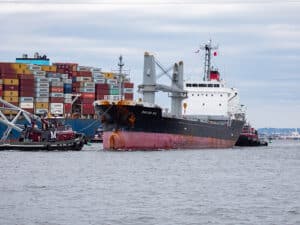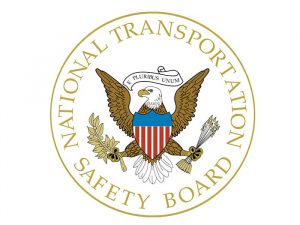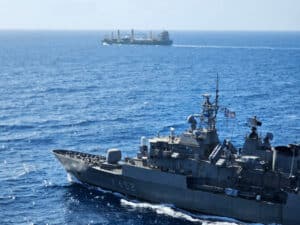
Chouest crew kidnappings are part of worrying trend
Written by Nick Blenkey
OCTOBER 28, 2013 —The two U.S. citizens kidnapped from Chouest’s C-Retriever are not the first seafarers to be seized off Nigeria, and not the first Chouest crew to be captured. Back in November 2011, three crew members were kidnapped from the Chouest supply vessel C-Endeavor in a similar attack off the coast of Nigeria. They were returned a few weeks later, unharmed. The conditions of their return, including whether or not a ransom was paid, were never disclosed. However both these cases are part of a growing problem in the region where, according to Colin Snowball, Associate Director Projects at security specialist Ambrey Risk, this year alone 40 attacks have occurred and 132 crew taken hostage.
Ambrey Risk, headquartered in Hereford, England, has particular expertise in maritime security issues in the region. Within the Ambrey team there is the experience of supporting in excess of 60 successful transits in West Africa
According to Ambrey Risk, attacks are rising because terrorist group Boko Haram is using kidnapping as a fund raising attack. The group’s formal name translates into Congregation of the People of Tradition for Proselytism and Jihad, which pretty much says it all.
Though the Boko Haram insurgency is said to have resulted in an estimated 10,000 deaths between 2001 and 2013 and roughly 3,600 killed, including 1,600 civilians between 2009 and 2013, the kidnappings of seafarers have resulted in few deaths and the duration of their captivity is generally far shorter than has been the case with Somali pirates.
Although the Nigerian Navy is said to have responded to the C-Rover incident, it is improbable that anything will unfold remotely resembling the “Captain Phillips” rescue scenario now packing movie theaters.
If the case has followed the usual scenario, within hours of being seized the C-Rover hostages will have been taken ashore, “usually in the Niger Delta as the Nigerian Navy does not even relish going into the area,” Ambrey Risk’s Snowball told Marine Log, adding that they will likely move the hostages a couple of times through camps.
Though some few hostages have been freed through Nigerian military action, even though the payment of a ransom is illegal in Nigeria, this is what generally takes place.
“As a result,” says Mr. Snowball, “the deal is done quickly and it would appear that the Nigerian Navy or Armed forces tend not to get directly involved unless the kidnapping is particularly high profile.”
Although the ransoms are generally around $250,000 for a crew of five non-Western hostages, the kidnappers demand considerably more for U.S. or British and European hostages, likely in the $1 million to $2 million range.
Mr. Snowball tells Marine Log that the pirates tend to try and get the kidnapping completed quickly, “generally within a month, as the Nigerian Forces will eventually seek them out. The pirates do tend to hand over their victims, it has been commented that the few fatalities have been by accident.”
With armed security teams having greatly reduced successful piracy attacks by Somali pirates, this is far harder to accomplish off West Africa, where the armed guards have to be provided by local national armed forces. “There is concern as to the overall standard of professionalism and discipline,” notes Mr. Snowball.
In the Gulf of Aden, the regulatory framework is clearer and it is easier to engage PMSCs (Private Marine Security Contractors), leading to competition and lower prices. However, this model cannot be extended to West Africa.
“It has unique challenges and is more expensive as a result of having to engage with the Local Armed Forces to provide the armed guards, who currently have limited experience operating on commercial vessels,” says Mr. Snowball. “There is a clear need to engage with reputable PMSCs to act as Maritime Security Liaison Officers (MSLOs) for the Master of the vessel, his crew and the Local National Armed Forces.”
“Due to the lack of International clear direction and the numerous options, not all legal, (often the shipowner is not aware of this), and cost, the charterers and/or ship-owners may make the mistake of going with the cheapest option, or just taking the risk of sailing without any security,” he adds.
What’s more, the various rules and regulations in Nigeria are not favorable to operations by established international PMSCs. The Nigerian Civil Defense Corp rules state that “No foreigner may own or operate a Private Security Company.”
The Nigerian Armed forces have recently undergone anti-piracy training by the U.S. and U.K. Special Forces, however only a small number of individuals have received such training.
“There is a need for knowledge transfer from the private sector in order to develop the confidence in the shipping industry to utilize both Nigerian Armed Forces and local companies,” says Mr. Snowball. “Much more work is required.”





Leave a Reply
You must be logged in to post a comment.